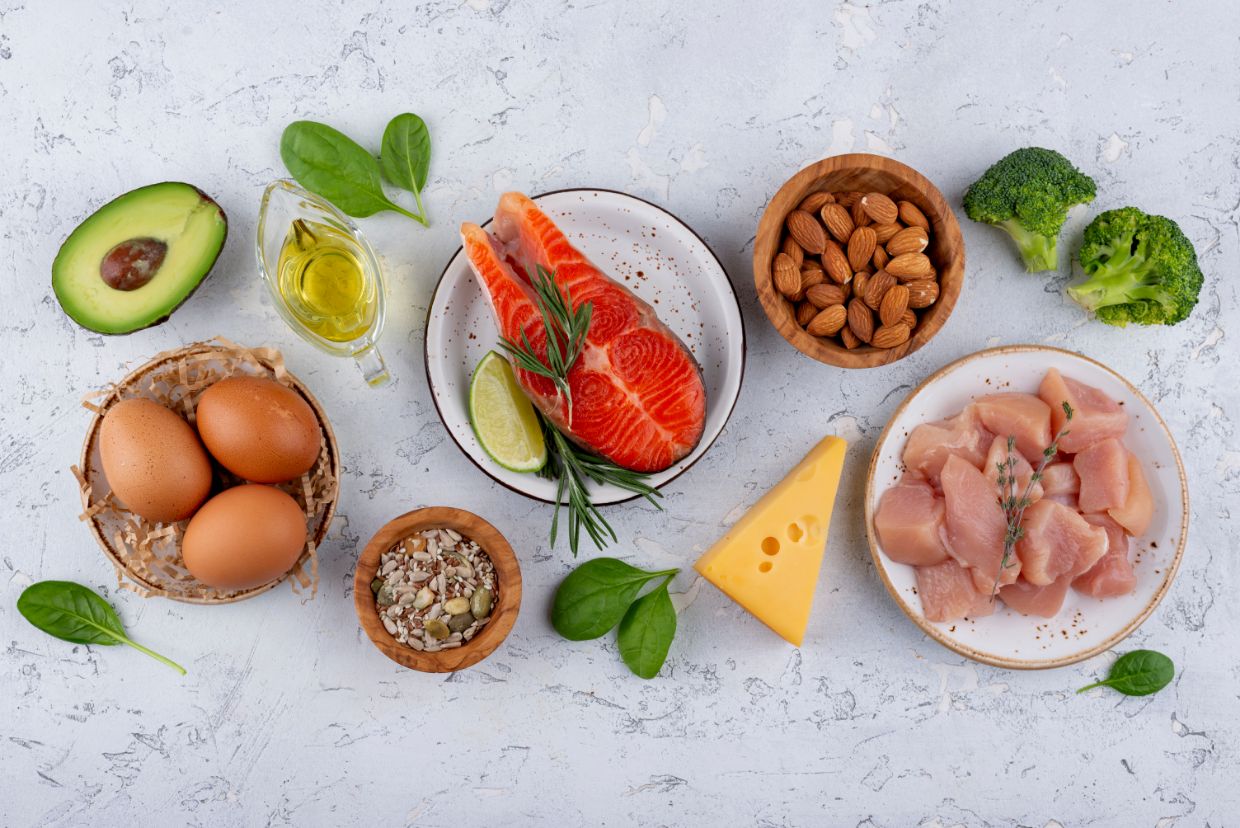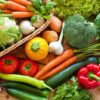A fresh wake-up in the morning, energy that lasts all day and a balanced body form… These features of a healthy life represent the common points of those who pay attention to what they eat. Suppose you have started to consume foods according to their nutritional values for a fit life. In that case, you can discover the protein-containing foods and benefits you need for muscle development and accelerating weight loss in this article.
What is Protein?
Protein is defined as a complex group of molecules consisting of amino acid chains. This basic building block, found in all living organisms, from the simplest bacteria to the most complex life forms, makes up about 16% of a normal human body. This complex molecule, which takes its name from the Greek word ‘proteios’ meaning primary and superior, is critical for many of the body functions.
What Does Protein Do?
Protein plays a crucial role in many stages of the human body, from transporting oxygen through the blood to the development of muscle, bone, skin, and hair cells. According to the study ‘The role of higher protein diets in weight control and obesity-related comorbidities’ published in the International Journal of Obesity, protein-heavy diets also support weight and fat loss.
The main benefits of protein are:
- Development and Repair: Protein is the most important building block of bone, muscle, and cartilage and is also closely related to the development of hair and nails. For this reason, children of developmental age need more protein than adults compared to their body weight.
- Energy: When protein intake exceeds what is needed for tissue repair and development, the excess molecules are used as energy. The excess proteins are utilised to produce fat cells if the body does not require energy due to insufficient carbohydrate intake.
- Hormones: They also play a critical role in various hormone activities. The hormone insulin, a small protein, regulates blood sugar, while the secretin stimulates the pancreas and intestine and helps the digestive process.
- Enzymes: Proteins participate in the structure of enzymes and accelerate chemical reactions. These biological catalysts help carbohydrate and fat digestion and contribute to DNA production.
- Antibody Production: It helps prevent infections and diseases by supporting antibody production. Antibodies, which work in an integrated manner with the body’s immune system, identify and destroy antigens such as bacteria and viruses.
How Does Protein Digestion Work?
The human body utilises proteins by breaking them down into their most diminutive forms. This process, called digestion, results in sequences small enough to be used by the absorptive cells in the intestine.
Digestion takes place in 3 steps:
- The mouth: The first breakdown stage begins when food is chewed in the mouth; however, digestion in the mouth is physical, not chemical.
- Stomach: Protein sources reach the stomach after ingestion, where they are chemically broken down into smaller pieces by stomach acid.
- Intestine: While the destruction process continues in the small intestine, the absorption phase begins to be sent to body tissues and blood cells.
Which Foods Contain Protein?
Protein-based foods, indispensable for athlete nutrition, are a formula for a healthy life. Enrich your meals with protein-containing foods to support your workouts with rapid muscle development and high-calorie burning.
The most common sources of protein are:
- Fish
- Chicken meat
- Red meat
- Milk
- Cheese
- Egg
- Yoghurt
What are the Foods Containing Plant Protein?
If you define your lifestyle through veganism, you may want to add new plant-protein foods to your diet.
- Chia seeds: A nutritious source of energy, 100 grams of chia seeds contain about 17 grams of protein. They are also used in many recipes for vegan diets and contain minerals such as calcium, iron, and zinc.
- Soya: Soya is an indispensable element in Asian cuisine. It is usually consumed with meals such as boiled beans. Soy is also a rich source of fibre and minerals and contains 37.2 grams of protein per 100 grams.
- Quinoa: Cooked quinoa, which is high in essential amino acids, offers 4.4 grams of protein support in a serving.
- Vegetables: Vegetable products are the main source of protein in vegan and vegetarian kitchens. When it comes to vegetables containing protein, foods with high nutritional value stand out, such as peas, spinach, broccoli, artichokes, and lentils.
- Fruits Although fruits contain less protein than other vegetable sources, they are a versatile nutrient storehouse in healthy smoothie recipes. Avocado, apricot, banana, kiwi, and blackberry are among the fruits that contain high protein.
What are the Foods Containing Animal Protein?
While the human body needs 20 different amino acids, it can only produce 11. The other nine essential amino acids need to be provided with protein-containing foods. You can choose animal sources to get all the essential amino acids your body needs.
- Seafood, the especially fish, is one of the healthiest animal proteins due to its low-fat content.
- Shrimp, lobster, crab, mussels, salmon, tuna and bonito are rich in protein.
- Poultry Poultry stands out among foods with high protein value because it is affordable and nutritious.100 grams of chicken meat contains approximately 23 grams of protein in the lean breast section. Duck, turkey, and quail are other poultry with high nutritional value.
- Red meat, Veal, beef, and mutton are known as the best-quality animal protein sources. One hundred grams of medium-fat Veal and beef contains approximately 18-20 grams of protein, and 16 grams of protein is found in mutton.
- Milk and dairy products: If you want to provide your body with calcium, potassium, and protein support, you can choose dairy products such as milk, cheese, and yoghurt.
- Eggs: Eggs, which are among the protein-drinking foods and indispensable for breakfast, contain all essential amino acids. While a medium-sized egg contains about 6-7 grams of protein, it should be consumed boiled for the best digestion.
Things to Consider When Following a Protein-Oriented Diet
By limiting carbohydrate and fat intake, high-protein diets accelerate weight loss and increase energy.You can regulate your diet by paying attention to some tricks to get the maximum benefit from these macromolecules.
1. Consume healthy proteins.
To make the most of protein sources, you need to turn to healthy options.Of course, you can get more protein into your body by constantly consuming a large steak; however, this can negatively affect your health. Instead, you can enrich your diet with sources low in saturated fat and high in nutrients.
2. You can supplement your diet with protein powder.
You can take protein powder supplements before and after exercise to accelerate muscle growth.* If you are wondering what protein powder is, it is produced from whey as a nutritional supplement that fitness enthusiasts especially prefer. It helps the formation of new muscle masses by promoting the repair of micromuscle tissues torn after exercise.
*Always consult a specialist before starting to use protein powder.
Balance your protein intake.
Discussing a fixed protein requirement that applies to everyone is impossible because many factors, such as exercise frequency, weight, age and health status, play a role. If you are looking for a formula for calculating your daily protein needs, you can meet your basic needs by consuming foods containing 0.8 grams per kilogram of body weight. Of course, if you have intense exercise routines, you may need to consume at least 1.5-2.2 grams per kilogram for a high-protein diet.
Primary food sources contain different amounts of protein, carbohydrates, and fats. For this reason, you should include the foods you consume in a balanced programme, paying attention to all components. If you want healthy results, it is beneficial to drink as much as your body needs, saying that too much of everything is harmful.






